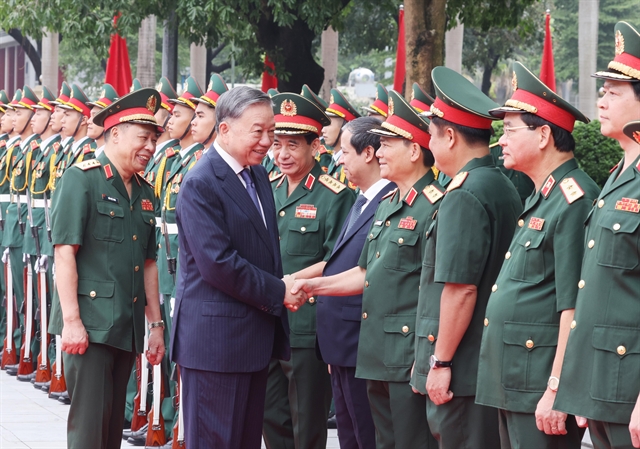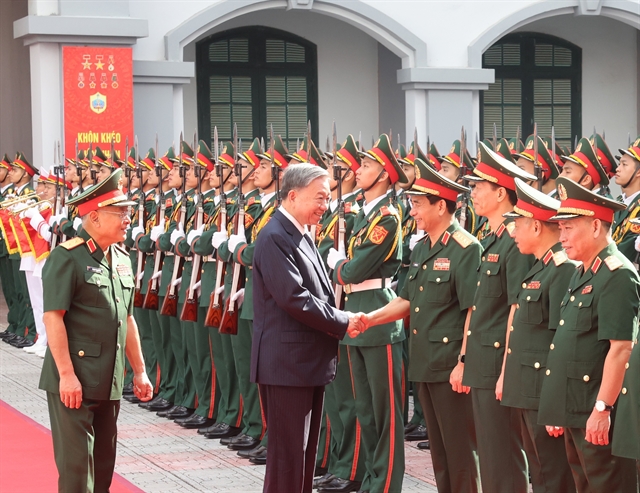 Politics & Law
Politics & Law

 |
| Officials of the General Department of Defence Intelligence welcome Party General Secretary, State President Tô Lâm on Sunday morning. — VNA/VNS Photo Trí Dũng |
HÀ NỘI — Party General Secretary and State President Tô Lâm on Sunday held a working session with the General Department of Defence Intelligence, highlighting the agency’s critical role and future priorities for development.
Also known as General Department II (under the Ministry of National Defence), the intelligence agency holds a pivotal role in collecting, assessing and advising the Party, the state, the Central Military Commission and the defence ministry in issuing directions and policies and ensuring proactive responses in strategic matters.
Addressing the department’s officials during the working session, the top leader underlined the vital role of the defence intelligence agency as a loyal and trusted force for the Party, State and the country’s military.
In nearly 80 years since its establishment, the department has made significant progress, fulfilling the tasks entrusted to it, and contributing to the nation’s liberation and unification in the past, as well as to the process of building and protecting the socialist state of Việt Nam today.
In addition to their effective advising to the national leadership, the department has consistently strengthened its apparatus, with a focus on Party building and rectification among its members to ensure a strong and transparent local Party Committee, thereby fulfilling its asigned political tasks.
Noting the possible impacts of complex and unpredictable global developments on Việt Nam, the top leader said that this context places an increasingly heavy responsibility on defence intelligence, requiring greater effort and determination to complete its assigned missions and contribute alongside the entire Party, people and army in building and protecting the country.
Regarding the directions and tasks for the near future, Lâm noted that General Department II must continuously enhance and effectively fulfil its role as the strategic intelligence agency of the Party and state, and as the military intelligence agency under the Central Military Commission and the defence ministry.
The department must improve and diligently exercise its advisory function to the state’s leadership, the military and the local authorities in assessing situations, determining policies and strategies, and enhancing the quality of its operations.
The top leader also required that the department must conduct regular reviews of its apparatus to maintain a streamlined and effective organisational structure, ensuring alignment between tasks, functions and scale, quality, capacity, and long-term personnel development.
It must also build a solid and flexible intelligence network that can maximise the combined strengths of various forces and methodologies.
The defence intelligence agency must prioritise building a revolutionary intelligence force, developing a generation of officials with solid political will, sharp perspectives and professional insights, thereby improving the policies and guidelines to meet both immediate and long-term missions. — VNS




